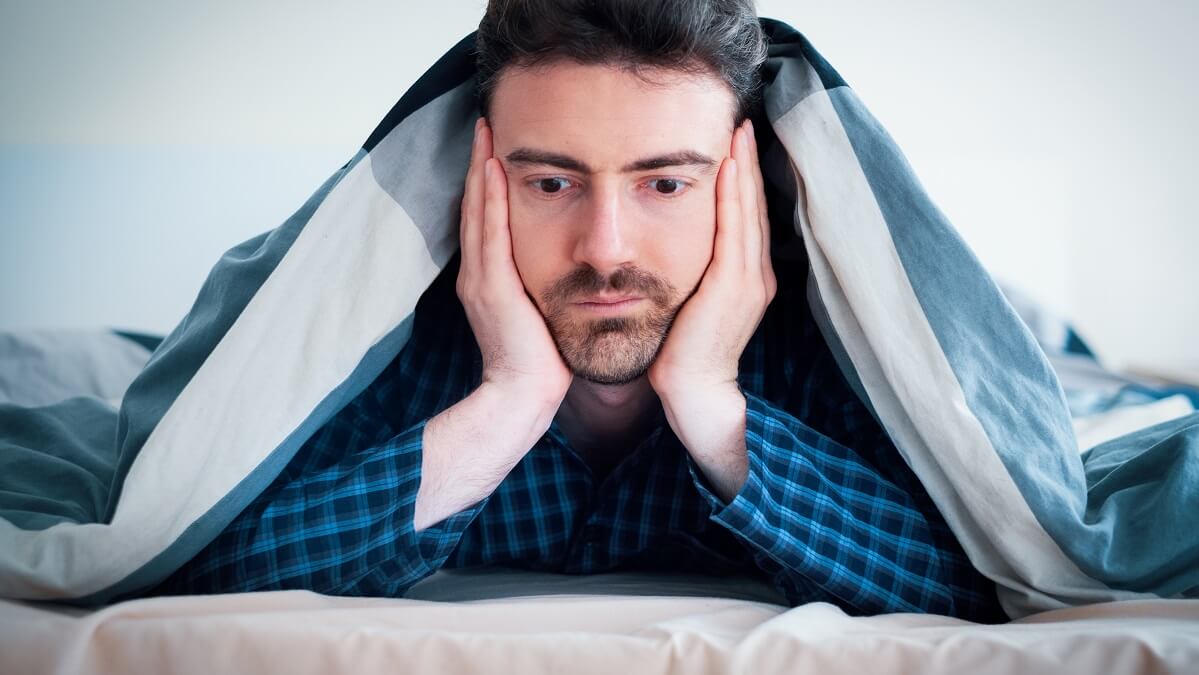There’s a saying about ‘sleeping like a baby’, but do babies actually sleep well?
Those oft-quoted words do not mean to sleep deeply or to sleep for a long time or even to wake up feeling hungry. What they really mean is that while babies might sleep lightly, they sleep peacefully and untroubled.
For many of you, sleeping peacefully and untroubled becomes more and more elusive as you get older, and the impact of inadequate sleep on our health can be widespread.
It is not uncommon for it to take more than half an hour for some people to fall asleep at night with one in three women and one in six men complaining about this issue.
Not only can it be hard to fall asleep but up to two in five older people suffer from insomnia and many people suffer from problematic snoring (40 per cent of older men and 20 per cent of older women).
Regular poor sleep can put you at an increased risk of developing heart disease, diabetes and obesity and can also shorten your lifespan, make it harder to learn and remember things and leave you in a chronic low mood.
Interestingly, a study from researchers at the University of Sydney also found that for people who have low back pain, inadequate sleep is likely to lead them to seek medical help for their pain. This might mean taking over-the-counter medications or heading to the doctor to ask for a scan or possibly stronger medication.
“Poor sleep can have a serious impact on the quality of life of people with low back pain, affecting their cognitive function, problem solving skills and their mental health,” says Emma Ho, a researcher on the study.
Inadequate sleep can also increase disability levels associated with low back pain, making it harder for people to achieve their day-to-day tasks.
“It is not surprising that almost 60 per cent of people studied were more likely to seek help for their low back pain if they had experienced poor sleep in the previous month,” says Ms Ho.
The cycle of poor sleep and pain is a complex one. According to the Australian Sleep Health Foundation, pain can interrupt your sleep, but interrupted sleep can also increase your pain.
Ms Ho says that “for people with chronic pain, just one night of poor sleep may correspond with increased pain levels the next day, and increased pain levels are also likely to correspond with getting a poor night’s sleep that night”.
Interestingly, although it is a reciprocal relationship, researchers believe it is more likely that sleep will increase your pain than the other way around.
Inadequate sleep due to delayed sleep onset, insomnia or poor sleep efficiency (lots of time spent in bed awake) has been found to increase sensitivity to painful stimuli as well as increase subjective reports of pain and musculoskeletal symptoms.
Poor sleep may also impact pain levels by affecting the person’s mood, function and self-efficacy. This means that not only are you more sensitive to things that hurt, but you may also have less capacity to cope if you are feeling low, less willingness to persevere with tasks that are painful, and less confident in your ability to get through the day.
Dr David Klyne, from the University of Queensland, says that between 30 and 50 per cent of the world’s population is affected by chronic pain and, of these people with chronic pain, 90 per cent experience poor sleep.
That’s a lot of people with pain and a lot of people who are not getting enough sleep.
Why is it harder to sleep peacefully and untroubled as you get older?
There are many reasons why your sleep becomes less efficient as you get older.
Melatonin, the hormone your body produces to help you fall asleep, naturally decreases as you get older.
From the age of 60, your circadian rhythm shifts forward slightly making you tired earlier in the evening and, combined with the lower melatonin levels, this often makes it harder to fall asleep when you actually go to bed.
Add bright lights in your homes and blue lights from devices and computers into the equation and some nights it can feel really hard to fall asleep.
General health conditions such as sleep apnoea, Parkinson’s disease and asthma can affect how well you sleep and mental health conditions such anxiety or depression are also highly likely to affect our sleep.
And don’t forget that menopause and nocturia (getting up to go to the toilet) might also affect the quality of sleep you get, leaving you waking the next day feeling under the weather and with more pain than usual.
So, if you suffer from chronic pain and you find yourself reaching for more medication than usual, feeling unable to tackle the tasks of the day or just a little overwhelmed, consider the sleep you have been getting lately. A good night’s sleep might just be the answer to get you back on your feet.
How well do you sleep at night? Do you have any sleep tips you can share with our members in the comments section below?
Also read: Is exercise as good as medicine?

